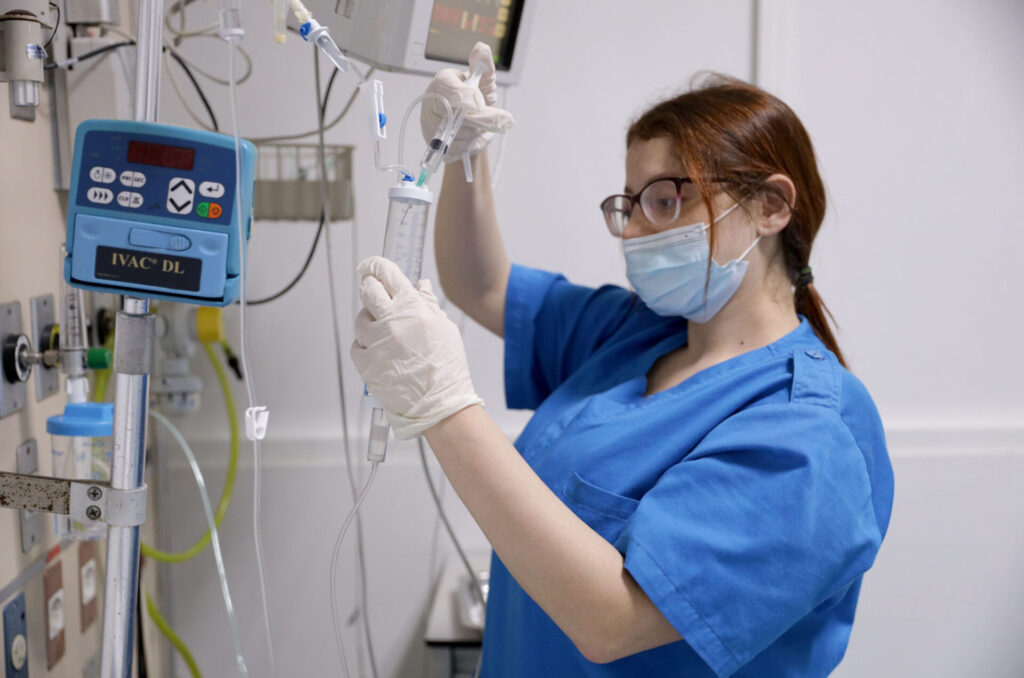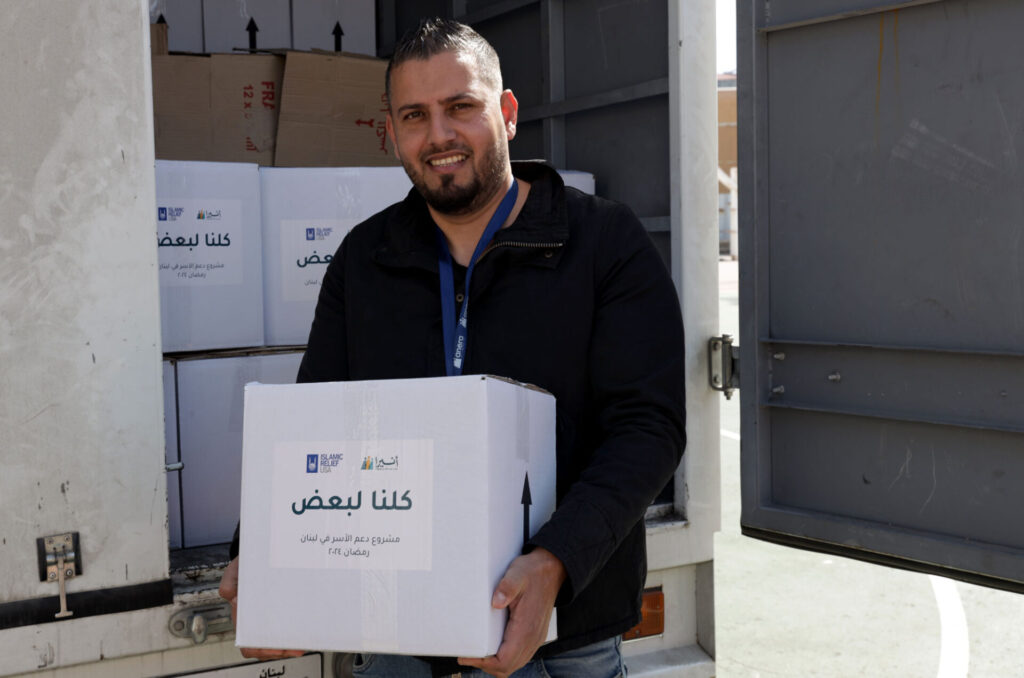Jul, 2022
Anera has distributed much-needed inhalers to help asthma patients survive
As Lebanon’s crisis continues, the United Nations has found that more than half the population now lives in poverty, with no sign that will improve any time soon. As a result, patients with chronic illnesses often find they cannot afford to continue treatment, which can be fatal.


“We have a duty to ensure that no child or adult is left without access to healthcare.”
Asthma patients are no exception. Soaring prices and low stocks of medicines mean many asthma patients are enduring relapses that impact their health. The displaced and refugees are at risk too.
Malak Abdul Ghafour is project officer for Anera’s national volunteering program. “Prices have soared,” Malak says, “and that has created a huge challenge for the public health sector. For many patients, the inhaler is basically their oxygen. I witnessed the tragic death of a child with severe cerebral palsy as a direct result of the delay in receiving his inhaler. We have a duty to ensure that no child or adult is left without access to healthcare.”
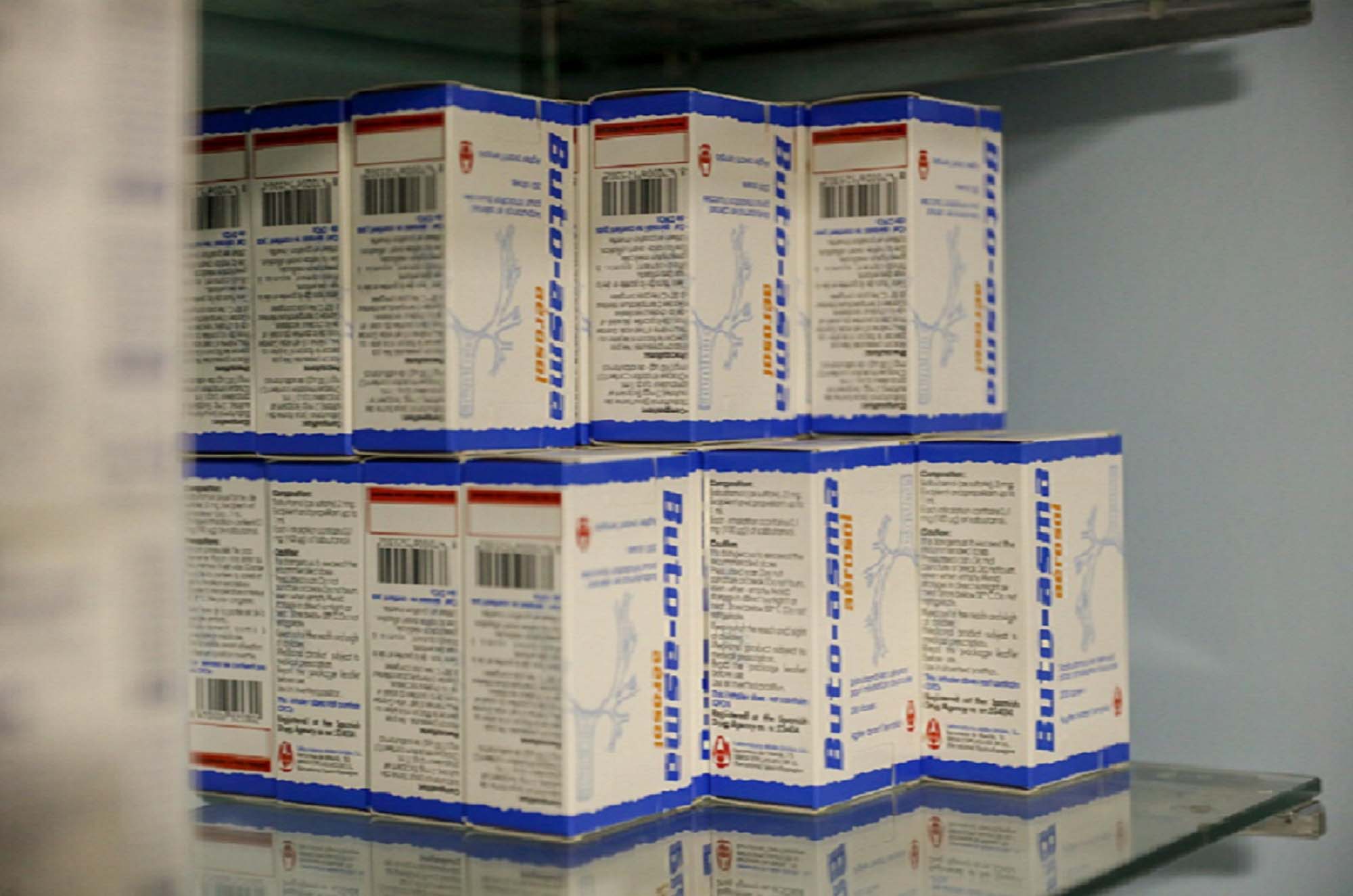

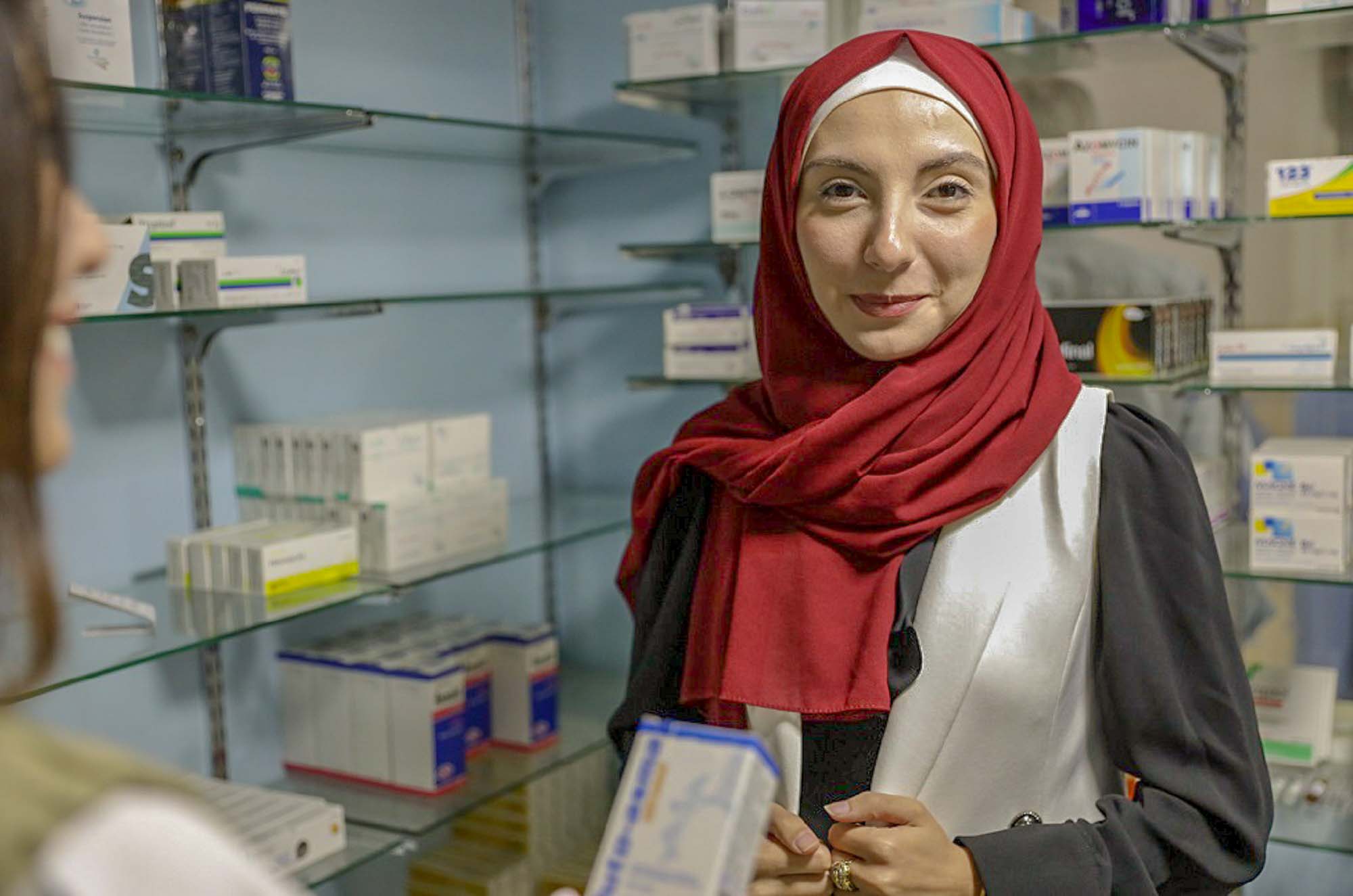

International Health Partners (IHP), a UK-based global health non-profit, procured a shipment of over a thousand inhalers. The donation included albuterol, a salbutamol inhaler used to control asthma exacerbations and shortness of breath. The project targets persons with asthma who often experience aggravating breathing. Inhalers can spare the patient the experience of being hospitalized, especially considering the high costs of medical bills and the ongoing pandemic.
In collaboration with IHP, Anera distributed the inhalers to its health partners in Lebanon. One of Anera’s partners is Al-Rawda Center in Beirut’s Burj El Barajneh Palestinian Refugee Camp
“We manage over 1,000 patients with chronic diseases, 20% diagnosed with asthma,” says Al-Rawda’s administrative director Yumna Ahmad al-Umari. “Thirty patients benefit from this donation on a regular basis and are able to receive inhalers and other medicines for asthma. We try to administer doses ahead of time, sparing the patient multiple trips to the center, especially considering the rising cost of transportation.”
Burj El Barajneh, established as a refugee camp in 1949 by the League of Red Cross Societies, is home to more than 30,000 refugees, mostly Palestinian, who are living in overcrowded conditions.
The ongoing currency crisis in the country has hastened the decline of Lebanon’s public health sector. Even privatized hospitals are now unaffordable. Hospitals and medical centers also are challenged by the shortage of medicines and medical supplies.
“The average family is barely covering basic needs,” Malak observes. “Underprivileged families are evidently put in a tougher situation, with their survival being dependent on humanitarian organizations and UN agencies.”
A survey report by Doctors Without Borders estimates more than half of health patients cite financial difficulties as the main barrier to accessing medicines, while 11% pointed to a general drug shortage in the market.
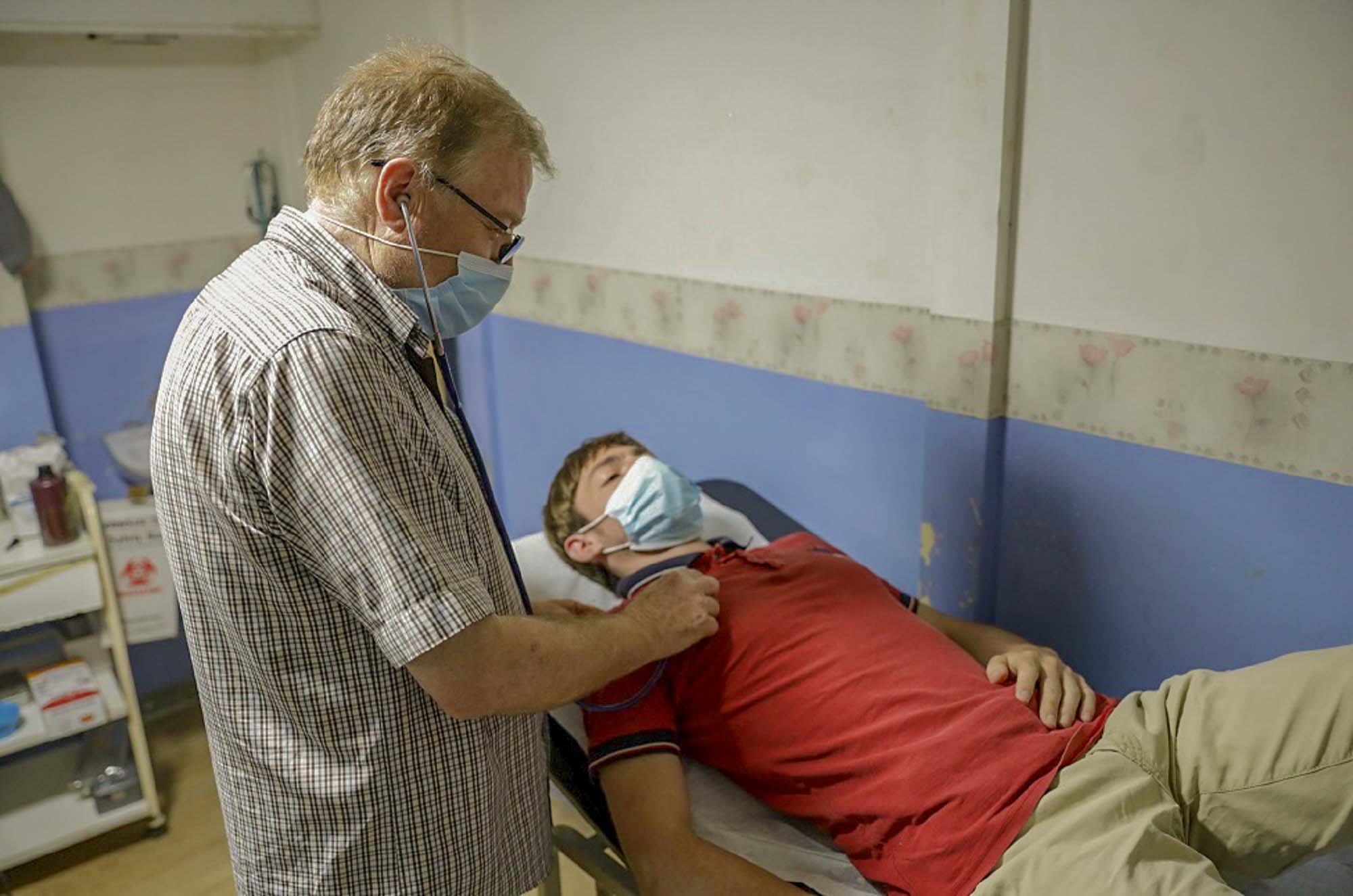



“I no longer have to find alternatives and can administer safe and monitored treatment.”
“My 35-year-old brother Elias has asthma and has been suffering from a shortage in inhalers,” says Joyce Sassine, Anera’s educational coordinator. “Apart from being expensive, it’s hard to find in the market. It's vital to provide such medications, even if it's not totally for free because skipping treatment is like leaving them choking, and may decrease oxygen levels in the blood.”
Sahar Amad Qawwas, a 30-year-old Syrian refugee whose child suffers from asthma agrees. “My seven-year-old has asthma and since the crisis, the price of his inhaler now costs over 200,000 lira ($132 US). To be honest, some months we can’t buy it for him. Thankfully, I signed up for the Anera program at Al-Rawda Center, which supplied us with inhalers, and regular and monitored treatment.”
The young mother sees her child’s condition improving, now that he has consistent access to an inhaler. “I no longer have to find alternatives and can administer safe and monitored treatment,” Sahar says.
Anera has distributed the donated inhalers to patients living in and around the refugee camp. Drug prices and medical supplies have more than doubled in price after the government lifted subsidies on some medicines and other basic necessities.
“In the old days, my inhaler sold for 5,000 lira ($3.30 US) but now I pay 90,000 lira ($60 US). it's also difficult to find them,” says 36-year-old Palestinian Amna Kamel who lives in Burj El Barajneh.
“One day you find them in the pharmacy and another day you don't find any. I’m thankful to Al-Rawda Center because it offers me one inhaler per month at no cost.”
Some patients can afford to travel to nearby countries to stock up on medicines. Others receive help from their loved ones visiting from abroad. But for those less fortunate, these donated inhalers are quite tangibly life saving.

